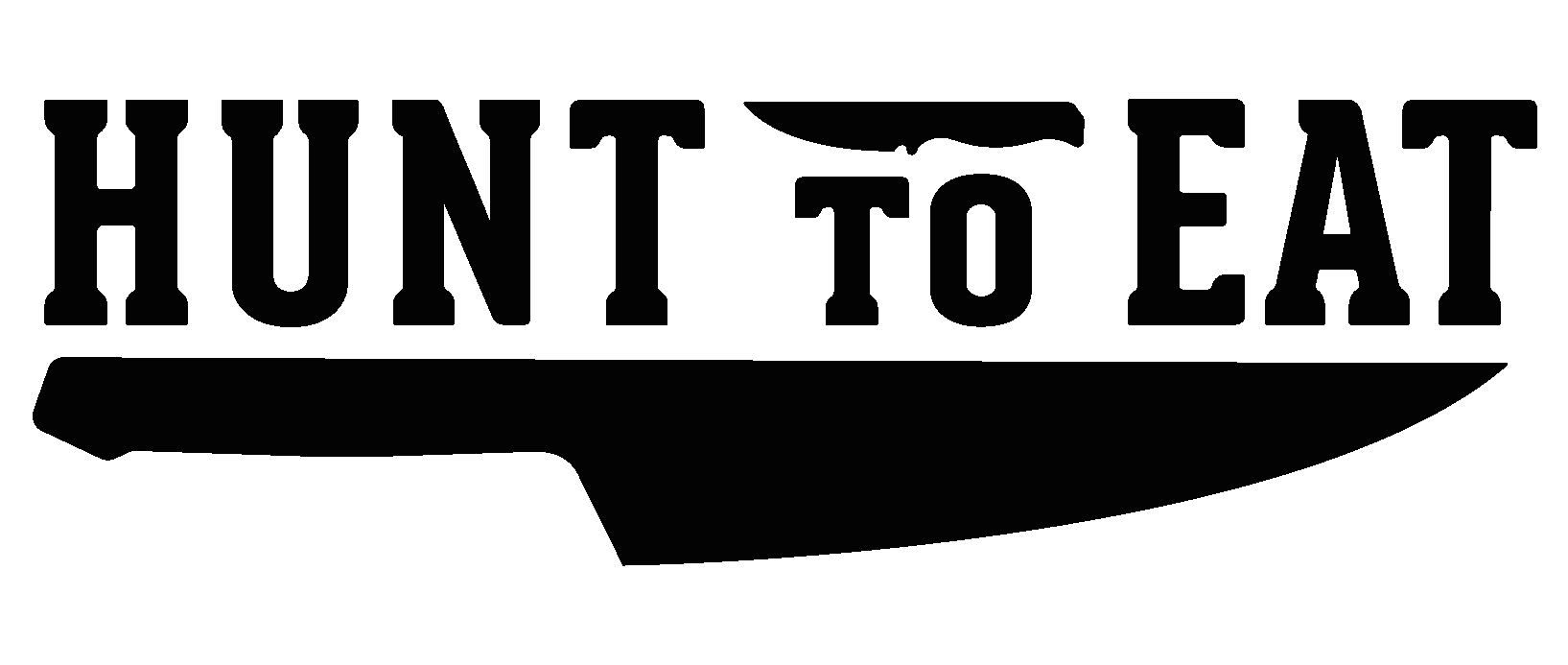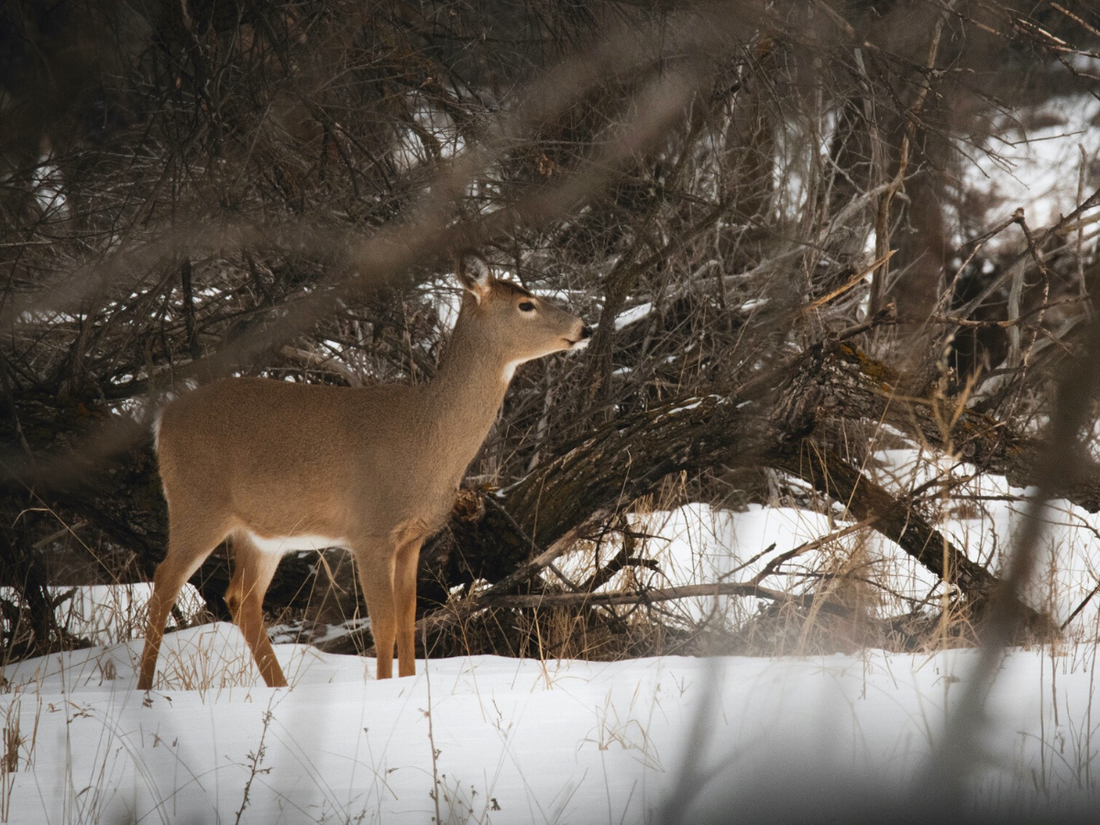This article was originally posted on Landscapes & Letters. It has been republished here with permission.
For many of us, the months spent in between hunting seasons are filled primarily with two things: preparation for the next season and telling stories about past seasons. Story-telling forges bonds and shares learning, and it's probably one of the most important social spaces of creative and intellectual exploration for hunters.
I imagine that story-telling has always been an inseparable part of hunting. From cave paintings to social media, it's likely difficult to overstate the role that story-telling has played in the history of human hunting culture. Hunting is simultaneously solitary and social; philosophical and biological; physical and intellectual. I think story-telling plays an important role in shaping and conveying who we are as hunters.

But what do the words we use to construct our stories reveal about who we are and how we see the world?
The anthropologist Paul Nadasdy suggests that the language we use to talk about hunting is structured by a system of metaphors, and these metaphors give some insight into the way we understand our relationship with wildlife. In particular, Nadasdy refers to a question many of us have discussed: do we harvest or kill wildlife?
I've encountered many hunters who make it a point to use either the term harvest or kill; and many others who use them interchangeably, perhaps not giving too much thought about the origins and semantics of the two terms. Some might suggest that it's pointless to spend time deconstructing words that ultimately refer to the same action; however, both Paul Nadasdy and the writer David Petersen believe that our word choice may actually distinguish us as hunters by expressing certain underlying worldviews concerning wildlife.

There are compelling arguments to use one term or the other. Personally, I prefer to use the term kill, for two main reasons. First, on a philosophical level, I think the word kill more accurately expresses how I think about my relationship with wildlife. As someone interested in the evolutionary and ecological aspects of hunting, I like to think of hunting in its most fundamental sense as an interaction between species engaged in a complex predator and prey relationship, in addition to the important role that culture plays in hunting.
Second, some might very reasonably argue that the word harvest softens the act and makes it more acceptable to non-hunters. While I agree that it is important to be sensitive to non-hunters in our representations of hunting, hunting is an ethically and scientifically sound conservation practice that is an integral part of the North American model of wildlife management. Therefore, I don't think it needs to be softened; we can be honest and factual without being disrespectful and insensitive.
In one of Nadasdy’s book chapters, “We Don’t Harvest Animals; We Kill Them”, he quotes Mary Jane Johnson, a member of the Kluane First Nation in Canada’s Yukon Territory. Johnson suggests that the use of the term harvest implies a sense of ownership and control over wildlife. Nadasdy goes on to argue that the use of agricultural metaphors in hunting—harvest, crop, stock, etc.— is a direct product of our system of wildlife management. Further, he argues that these terms reflect and continue to construct a particular way of understanding human relationships with wildlife.
In 1933, when Aldo Leopold wrote Game Management, he laid the foundation for the field of scientific wildlife management. Leopold referred to wildlife in purely agricultural terms: "Game management is the art of making land produce sustained annual crops of wild game...Its nature is best understood by comparing it with the other land-cropping arts." Indeed, public ownership of wildlife is a central tenet of our model of wildlife management, and one of the features that has contributed to its success. Today, however, this conceptual representation of wildlife may not be the most appropriate reflection of how many of us think about hunting.

In David Petersen's poignant examination of hunting, Heartsblood, he devotes a chapter to a 1978 study published by Stephen Kellert. Kellert spent two years studying the attitudes and characteristics of hunters and antihunters. While acknowledging that the identities of hunters are highly variable, he distinguishes between three broad categories of hunters: utilitarian hunters, dominionistic hunters, and nature hunters. I would hesitate to lock anyone I know into any singular category, but Kellert's groups are useful for thinking about different ways we understand the relationship we create with wildlife through hunting.
According to Petersen's summary, utilitarian hunters are concerned primarily with hunting for food, seeing wildlife in a purely instrumental way. This group, Kellert noted, expressed their relationship with wildlife in some of the same agricultural terms identified by Nadasdy. According to Petersen, these terms are simply euphemisms that "reduce such lovely and lively creatures as deer, elk, and grouse to the level of turnips". While my view is not necessarily as extreme as Petersen's, it is worth noting that 44% of Kellert's study participants use these agricultural metaphors – though that does not necessarily qualify them as utilitarian hunters.
If the agricultural metaphor signifies a view of wildlife characterized by ownership and control, Nadasdy turns to a Kluane First Nations perspective for an alternative view of wildlife. In a Kluane worldview, wildlife "management" is about the maintenance of social relationships - both among humans and between humans and animals. This view of wildlife proposes that humans have responsibilities towards wildlife. Management, therefore, is about managing our role in upholding these responsibilities rather than exercising our "right" to control and therefore kill wildlife. It is only in upholding our responsibilities that these relationships are maintained, and only then can we maintain healthy wildlife populations.
I suspect that the Kluane view of wildlife is probably more in line with Kellert's third category of hunters: the nature hunter. According to Kellert, nature hunters are characterized by their strong knowledge of the animals they hunt, a "desire for an active, participatory role in nature", and seeking "an intense involvement with wild animals in their natural habitats". I imagine that many of us fit proudly into this category. Given the changing nature of culture and scientific wildlife management, I would suggest that where the Kluane speak about social relations, many of us are saying something similar when we speak about land stewardship and conservation.
I'm proud of the legacy of our model of wildlife management in North America, including the aspect of public ownership of wildlife; however, perhaps paradoxically, I don't think of wildlife as being owned and controlled. I think we can embrace a more complex concept of "ownership" than thinking of wildlife as simply objective possessions. Therefore, I don't think the term harvest adequately encapsulates the complex nature of the interaction between humans and wildlife enacted through hunting. At the same time, I don't think the term kill minimizes or sterilizes this interaction. On the contrary, I think by calling it what it is, we are being honest and humble. To put this in another perspective, would anyone say that you watched a mountain lion “harvest” a deer? Not likely. You’d say that the lion killed the deer. Thought of in this way, by using the word kill, we are placing ourselves within nature as just another species, not above nature as the one in control.
Whether you use the term harvest or kill, the point here is that the language we use has linguistic and cultural meanings, and these connote a particular worldview with regards to human interactions with wildlife. I wonder, what other messages are we sending through the words we use and the way we frame our stories? Are they the messages we intend to send and the ones we want people associating with our ethics and ecological worldview? The vast majority of hunters I know think deeply about their roles in the natural world and reflect often on their relationships with wildlife. I think it is important, therefore, that we take the time to ensure we are speaking to others in a way that reflects these emotional and intellectual understandings.


